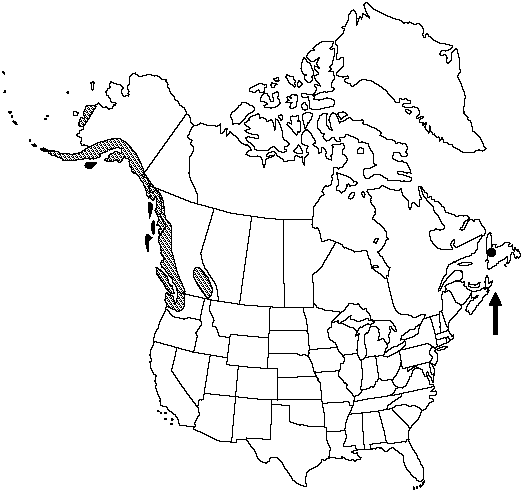Huperzia miyoshiana
Acta Bot. Yunnan. 3(3): 303, 304. 1981.
Shoots erect, determinate, 12–18 (–25) cm, clustered to long-decumbent, to 8 cm; leaves in mature portion smaller than leaves in juvenile portion; annual constrictions absent; juvenile growth sharply down-curled forming ± 1/2 circle, leaves at tip appressed to form pointed apex. Leaves in juvenile (proximal) portion spreading-reflexed (shade) to appressed-ascending (sun), in mature (distal) portion spreading-ascending (shade) to appressed-ascending (sun), light green to yellow, lustrous; leaves in juvenile portion narrowly lanceolate, parallel-sided, 4.5–7 mm; leaves in mature portion triangular, widest at base, 3.5–5.5 mm; margins entire; stomates present on both surfaces, numerous, 35–80 per 1/2 leaf on adaxial surface. Gemmiferous branchlets produced in 2–3 pseudowhorls at end of annual growth; gemmae 3.5–5 X 3–4 mm, lateral leaves 1.25–1.75 mm wide, acute with acuminate tip. Spores 25–34 µm.
Habitat: On rock or terrestrial on moss-covered boulders in talus slopes, cliffs, near waterfalls, marshes in conifer forest
Elevation: 0–1600(–1800) m
Distribution

B.C., Nfld., Alaska, Wash., Asia in Japan, Korea, Siberia.
Discussion
Selected References
None.